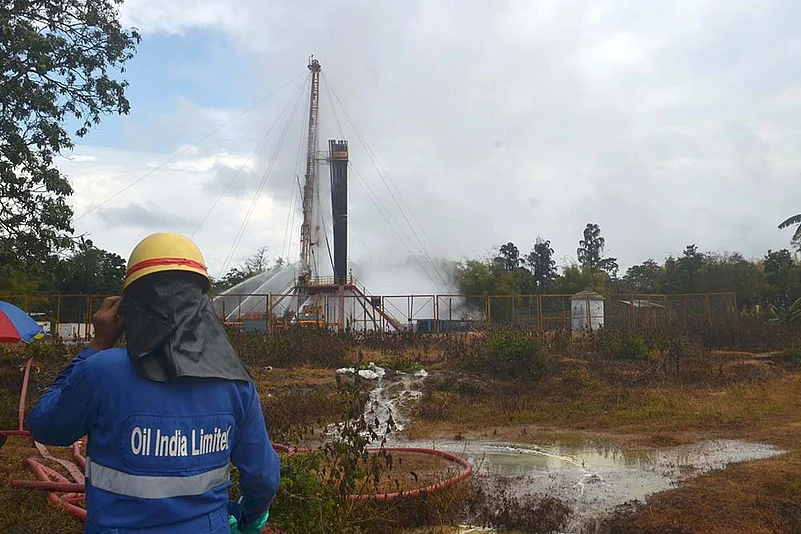Most big listed companies globally are run by a managing director or CEO and a chairman presiding over the board of directors with the primary responsibility of protecting the interests of investors.
But, India's largest oil company Indian Oil Corporation (IOC) is an exception for never having a managing director or CEO in its 63 years of existence.
IOC, the nation's largest oil refiner and retailer of fuels like petrol and diesel, has always been headed by a chairman, who has also discharged the role of a managing director or CEO. But this is likely to change soon with the Oil Ministry agreeing to redesignate the top job as chairman and managing director, sources aware of the matter said.
The company has long been demanding for such a change to bring it on par with other large public sector and private firms. That demand has now been agreed to by the firm's parent administrative ministry and is now awaiting concurrence of the Ministry of Corporate Affairs (MCA), they added.
IOC currently has a chairman—Shrikant Madhav Vaidya—and seven functional directors responsible for finance, marketing, human resources, pipelines, refining, planning and business development, and R&D.
The sources said the director for research and development (R&D) post is likely to be extinguished as it makes no commercial sense to have a director for a division with just 400 persons.
No major company has a director for R&D, and the function in the case of IOC is likely to be merged with one of the directors, they said.
All state-owned firms as well as the private sector either have a chairman and managing director or a CEO looking after the day-to-day functioning of the company and a chairman heading the board.
Recently, the government appointed Arun Kumar Singh as the chairman of Oil and Natural Gas Corporation (ONGC) but not as managing director. ONGC was previously headed by a chairman and managing director, and it is likely that the government may name a separate CEO or managing director of the company.
Typically, the chairman is not present for the day-to-day operations of a company, which is the job of the CEO or managing director. The chairman is the most senior member of the board of directors or trustees while the CEO is the highest-ranking executive in the organisation's operating hierarchy.
The chairman directly manages the company's board members, while the CEO directly manages the company's senior executives.
Beyond the operations of a business, the chairman may guide high-level policy decisions, and the CEO generally leads from within the operational framework of the business, overseeing activities.
The Securities and Exchange Board of India (Sebi) had previously mandated the separation of the roles of chairperson and managing director/chief executive officer (MD/CEO) of a company, but last year it stated that this was no longer compulsory and firms can do so on a "voluntary basis".
Most large companies, particularly family-run ones, in India have the same person as the chairman and managing director. Mukesh Ambani is the chairman and managing director of Reliance Industries Ltd, India's most valuable company. Richest Asian Gautam Adani is the chairman and managing director of the Adani Group.
Tatas on the other hand has a chairman at the group level and managing directors or CEOs at different companies of the group.
The sources said the chairman of IOC in its early days was a political appointee and so was more responsible for managing the board than running the company. But, over the years, when professionals got appointed to the post, they also were expected to discharge the job of a managing director.
Now, to get the role aligned in conformity with the corporate governance standards, the role is being strengthened by redesignating it as chairman and managing director, they added.

Indian Oil Chairman To Also Be Managing Director
Indian Oil Chairman To Also Be Managing Director
Published At:
MOST POPULAR
WATCH
MORE FROM THE AUTHOR
×



















.jpg?w=200&auto=format%2Ccompress&fit=max)




